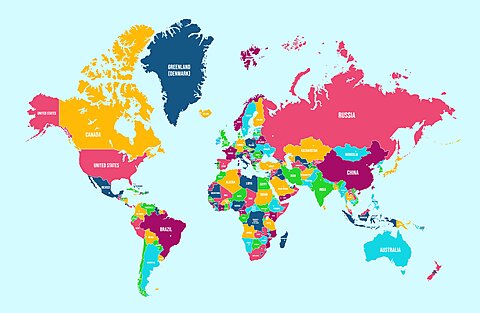Since the political ascent of Donald Trump, Americans have been subjected to endless think pieces on the “isolationism” that he purports to represent and threatens to unleash upon the postwar order. David French’s most recent column for the New York Times, “There Will Always Be a Trump. That’s Only Part of the Problem,” is the latest offering in this line of commentary. Like many articles before it, French relies upon a narrow understanding of American noninterventionism, derisively referred to as “isolationism,” and a simplistic understanding of those who proposed greater American involvement in foreign affairs.
As has become common in America’s mainstream news outlets, French provides a myopic history of noninterventionism, casting it as spiritually akin to all the evils of American history, thereby juxtaposing it against his own thinly veiled whig history. French laments that after being founded as the party of emancipation, the Republicans suffered from frequent bouts of “reaction, isolationism and xenophobia.”
However, noninterventionism, what French blindly casts as “isolationism” (a long-debunked historical falsehood), had its roots in emancipation as well as slavery, nativism as well as assimilationism, and far deeper roots in the soil of American liberalism than French’s ill-defined reactionism. Indeed, looking back at the socio-political roots of organized noninterventionism, its proponents, largely in the Midwest, hailed from every corner of Europe. Be they Germans, Swedes, Irish, Dutch, or “old stock” from the British Isles, these immigrants and new Americans embraced the ethos of America First because they rejected the illiberal power politics of “the Old World.”
German Americans, many of whom fled the militarism and conscription of the Prussian empire, settled in an American republic and vowed to keep it unsullied by the geopolitics of Europe, as the Founding Fathers had counseled. As historian Manfred Jonas argued, the “isolationists may therefore be regarded as the true heirs to the American tradition.”
By the time of the Great War, if anything, it was the interventionists, predominately industrial Northern elites, and a Southern planter class that had the deepest generational ties in the country. From President Woodrow Wilson on down, supporters of American involvement in Europe’s war openly accused their fellow Americans of disloyalty, cowardice, and malingering. The Wilson administration and its supporters used the private power of the noose and the public power of the courts to suppress American liberty at home in the name of fighting for it abroad. If “isolationism” had a “reactionary” element it was a realization that adventures overseas undermined liberty at home.
Of course, not every champion of noninterventionism from yesteryear or the present was a civil libertarian free of personal or ideological baggage. One of the leading noninterventionist voices that arose in response to the American occupation of the Philippines and took a stand to American involvement in the Great War, Representative Claude Kitchin rode to power on the back of a white supremacist revolt. And, yes, Charles Lindbergh, a figure who French invokes, held racist views that motivated his stance against American entry into World War II.
Yet, history is challenging, for while figures like Lindbergh drew his opposition from the lowest of places of American life, he also argued that his fellow Americans ought not “to capitalize on the destruction and death of war.”
The various threads of American history, both admirable and contemptible, ran through the noninterventionist movement and often within the same people. In his effort to pull out the former while neglecting the latter, French simplifies the nuance of American history for contemporary political gain.
French’s command of foreign policy history is as tenuous as his knowledge of the history of those who opposed it. His article portrays the election of Dwight D. Eisenhower, notably his primary victory over Senator Robert A. Taft, as a turning point, a victory over both “isolationism” and populism, a triumph that warranted Eisenhower “put his thumb on the scales.” However, like his account of those who opposed American entry into the North American Treaty Organization, he is similarly loose with Eisenhower’s views on the organization and America’s relationship with it. While it is true that Eisenhower felt compelled to enter the 1952 presidential race based on American foreign policy, he held more nuanced positions on America’s role in the postwar world than French would have his readers believe.
Absent from French’s account is the then-General Eisenhower’s assertion that “in 10 years, if all American troops stationed in Europe for national defense purposes have not been returned to the United States, then this whole project [NATO] will have failed.” French makes no mention that upon assuming the presidency, Eisenhower lamented that Europe was “making a sucker out of Uncle Sam.”
Finally, French’s article, glaring in its absence, makes no mention of Eisenhower’s reservations with America’s new role in the world, encapsulated by his famous farewell address, in which he coined the phrase, the “military-industrial complex.”
Whether it is his coverage of “isolationism” or Eisenhower, French reveals a lack of understanding of historical contingency and a deep disdain for popular sovereignty. While French stops briefly to note that “there were good reasons for reactionary populism,” citing the catastrophe of the Iraq War and the 2008 financial crisis, he does not linger there long enough to let such observations inform his analysis. Rather, he states that this latest turn towards “isolationism” is just another return to “base instincts.” There is no effort on his part to acknowledge the legitimacy of Americans’ anger over those foreign policy missteps and offer policy corrections to ameliorate their domestic impacts. One is left with the impression that John and Jane Q. Public are just supposed to suck it up and continue their deference to a foreign policy “elite.”
Instead, while he laments the reactionary tendencies of populism throughout American history and in our current political moment, he also declares that the “people are not always right” and require the “moral courage” of “leadership” lest Americans find themselves “led astray.” Thus, in this piece, French embodies the very detached elite that has given rise to the populism and “isolationism” that he so disdains.
French is right in one respect: there will always be a Trump because America has no shortage of Frenches.












